It is known that too much protein can lead to health problems. But how does it behave in the opposite case? Is also a Protein deficiency problematic?
What is protein deficiency?

© samael334 - stock.adobe.com
Proteins are one of the most important parts of the body. It is understandable that a protein deficiency can have serious consequences. One speaks of a protein deficiency when the body has fewer proteins than necessary.
This can happen through an inadequate diet as well as an enzyme deficiency, due to certain diseases (e.g. celiac disease, thyroid disease) and with increased consumption (e.g. fever).
The so-called albumins are most likely to be affected by a protein deficiency. They are indispensable for the human organism and ensure the necessary pressure in all cells. For this reason, there is always a danger to life if there is a long-term and clearly pronounced protein deficiency.
causes
A lack of protein is often due to insufficient intake through food. This is particularly common in young children in developing countries. In addition, there are diseases such as tuberculosis or AIDS, which further promote a protein deficiency.
In industrialized nations, protein intake is usually covered by food. If a protein deficiency nevertheless occurs, other diseases (for example of the liver, kidneys, skin or the heart) play a role. The primary disease prevents the uptake of protein. A previously damaged liver tissue can no longer produce a sufficient amount of protein.
People who follow a vegan diet also have an increased risk of protein deficiency. In some cases, altered genetic information is the cause of a protein deficiency. When such a change occurs, certain hereditary diseases occur, depending on which protein is no longer produced.
You can find your medication here
➔ Medicines for muscle weaknessSymptoms, ailments & signs
- Muscle weakness
- Decrease in muscle mass
- Edema
- Wound healing disorders
- Hair loss
- Weight loss
- Wrinkling
- Eye rims
- protruding bones (e.g. on the face)
Diagnosis & course
A protein deficiency in European countries occurs relatively rarely. If a protein deficiency is suspected, a doctor should always be consulted. We strongly advise against self-diagnosis.
The reason: a protein deficiency can be the result of a serious illness. The attending physician can make the diagnosis by examining the blood. Further examinations are used to determine whether the patient may have another disease that could hinder the absorption of proteins.
This can be cancer as well as disorders of the gastrointestinal tract or diseases of the thyroid gland. If a protein deficiency is not treated, the body breaks down more and more body functions over time. In the end there is inevitably a breakdown.
Complications
If a protein deficiency is not treated in good time, serious complications will inevitably arise. First of all, a lack of protein causes visual changes such as the edges of the eyes, the formation of wrinkles or hair loss. In the later course of the disease, protruding bones and sunken cheeks as well as noticeable skin changes appear.
In addition, with prolonged existence, there is a sharp loss of weight and a reduction in muscle mass. The lack of protein causes muscle weakness, which is associated with restricted mobility. This often causes general dissatisfaction and sometimes severe mood swings and mental illness.
Edema and wound healing disorders can also occur, which in turn can lead to severe inflammation and infections. If there is no treatment at the latest, the body functions decline more and more. This inevitably leads to a circulatory collapse and ultimately to death of the patient.
If too much protein is supplied to the organism too quickly during the treatment, this can cause severe kidney damage and over-acidification of the body, among other things. There is also the risk of allergies and intolerance. Due to the severity of the possible complications, a doctor should be consulted immediately if a protein deficiency is suspected.
When should you go to the doctor?
Before anyone can speak of a protein deficiency, the question must first be asked: How much protein is a person actually needed? Opinions are divided on this question alone. Rightly so, because the actual amount depends on a myriad of factors. Be it size, age, gender or external circumstances, physical activity and a variety of other things.
A deficiency, if there is one, is usually noticeable and is relatively easy to identify. This can be identified, for example, by muscle weakness. If the body receives too little protein through diet, it has to break down the existing mass, in this case the muscles, in order to ensure its well-being.
Dry and brittle hair can also be a result of too little protein. Nails behave very similarly in this regard. A chain reaction, triggered by muscle breakdown, can also be a sign of fatigue and a weak immune system, which gradually becomes noticeable.
If you have these symptoms you should definitely consult your family doctor. He usually knows what to do. If not, they will mediate.
Doctors & therapists in your area
Treatment & Therapy
The treatment of a protein deficiency is always based on its cause. If there is an inadequate diet, sufficient protein intake must be ensured in the future. However, this should be done slowly and under medical supervision.
The reason: Complications from excessive protein intake should be avoided. It is better to eat several servings throughout the day. Those who have previously followed a vegan diet should now now and then have fish, eggs, milk and lean meat on their menu. If a certain disease is responsible for the protein deficiency, it is important to treat this disease. Until healing or if this is not possible, the increased protein requirement must be supplied through food.
If the protein deficiency persists over a longer period of time, this can lead to a failure of all important functions in the body. If left untreated, a protein deficiency leads to death. Since the feeling of hunger decreases with age, you should pay special attention to the elderly. A friendly atmosphere and good company can help.
Outlook & forecast
The prognosis of a protein deficiency is good. With adequate medical care or a change in diet, those affected by protein deficiency normally have a good chance of a cure within a few weeks or months. If the necessary need for protein is balanced and maintained over a longer period of time, the symptoms are alleviated and the deficiency disappears.
In many cases, a healthy and balanced diet is enough to improve your health. If the deficiency is not very pronounced and there are no other diseases, drug treatment is not absolutely necessary. The change in diet is already sufficient. Despite the good prognosis, a relapse can occur at any time. Regular checks are therefore advisable.
In the case of existing diseases or an unhealthy diet, there is an undersupply. If there is no supply of sufficient protein, in the long term, along with numerous complaints, there will be a physical breakdown.
Therefore, timely action is life-saving for diseases of the gastrointestinal tract, genetic defects, thyroid and cancer diseases or a vegan diet for a good prognosis. As soon as the first signs of a protein deficiency, such as weight loss, hair loss or unusual wrinkling, a blood count should be taken to get an overview of the missing nutrients in the blood.
You can find your medication here
➔ Medicines for muscle weaknessprevention
Protein deficiency can be prevented very well through diet. A combination of animal and vegetable protein should be considered. So yogurt can be eaten with nuts and meat with peas. Also suitable dishes are potatoes with quark and all kinds of legumes. Then come lean meat and fish. It is known that gastric acid production decreases after the age of 40. This can further promote a protein deficiency. Taking a protein concentrate can be helpful here.
You can do that yourself
A severe protein deficiency is extremely rare in the western industrialized nations. However, this deficiency can occur under certain conditions. Individuals who suspect they may have this disorder should definitely see a doctor. It is essential to refrain from pure self-diagnosis and self-treatment. In the worst case, a protein deficiency that is not treated or treated incorrectly can lead to death.
Those affected should first seek clarification from a doctor about the cause. If the protein deficiency is due to an underlying disease, those affected can possibly help to cure it. For example, severe liver damage can be responsible for the organ no longer producing enough protein. Such liver damage can be due to continued abuse of alcohol or medication. In this case, the affected person should immediately go on a drug addiction treatment and start therapy to avoid a relapse into drug addiction.
If, after being clarified by the doctor, it is clear that it is a diet-related deficiency symptom, the person affected should seek professional help. Psychotherapy is advisable for an eating disorder. If the protein deficiency can only be traced back to a one-sided diet, the patient can seek advice from an ecotrophologist and have a nutrition plan prepared according to his needs, which ensures an adequate supply of protein.

.jpg)
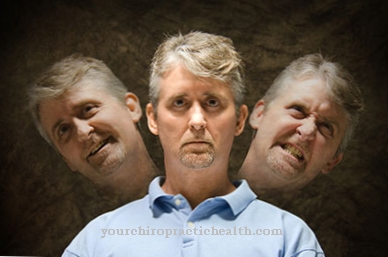
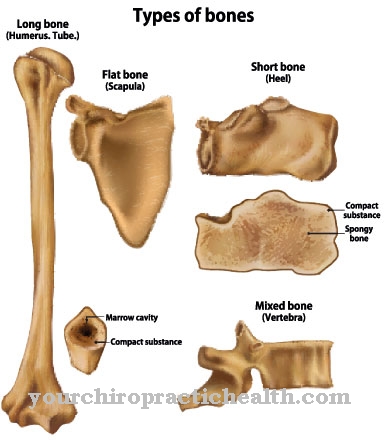
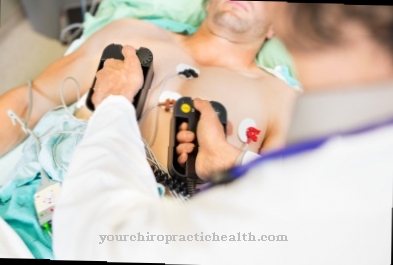
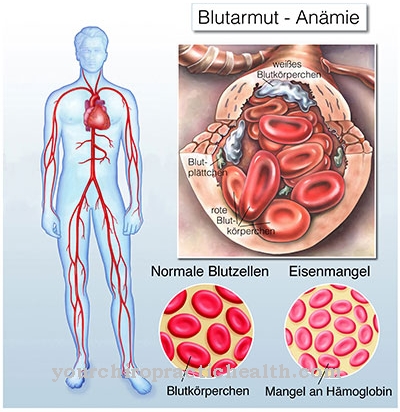
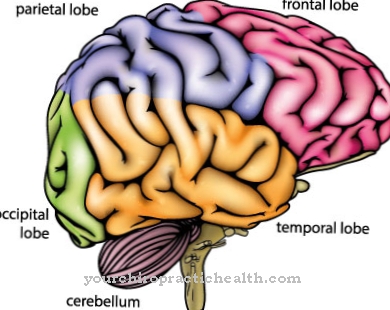





.jpg)



.jpg)










.jpg)
